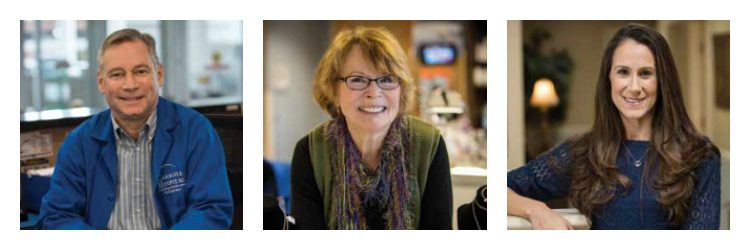Volunteerism not only benefits the organization where you dedicate your time and talent, but your health as well. Studies have shown that volunteering increases mental health and function, improves physical and emotional health, and reduces stress.
Month: April 2017

Strawberries with Balsamic Vinegar
Summer fruits taste sweet but their high water content makes for a surprisingly low carbohydrate content, especially once you consider how much fiber they provide. This recipe is listed as a dessert but could also be served as a side or a topping for a summer salad.

Fruits and Vegetables Quiz
How well do you know your fruits and vegetables? Take our true-or-false quiz to find out!

Asparagus with Balsamic Tomatoes
Spring is the time to enjoy asparagus at its finest. Look for firm stalks, with the buds still tight. Asparagus is incredibly versatile in that it can be grilled, roasted, steamed, or blanched as in this recipe or for a surprise addition to a veggie tray. Cook more than you need for a meal… there are always uses for leftovers.

Inside Carroll Hospital: CrimeCam
Carroll Hospital’s Forensic Nurse Examiner program is enhancing its efforts to identify injuries of victims of domestic violence through the use of new technology.

EatingWell Deviled Eggs
April is the month for too-many hard cooked eggs! Try this lighter version of deviled eggs for a guilt free way to enjoy them. Eggs are a complete protein, and the addition of cottage cheese offsets the fat in the mayo while adding some creaminess. Check out the EatingWell website for the rave reviews!

Medical Misconception: Advance Directives
Each month, a health care professional will weigh in on a health and wellness myth.
This month’s misconception: Advance Directives
Advance directives are an important, but often misunderstood, tool in health care. This document specifies what actions should be taken in the event that you are no longer able to make health care decisions due to illness or incapacity, and it identifies a person of your choosing to make such decisions on your behalf.
Myth: I’m healthy so I don’t need an advance directive.
Anyone age 18 or older should have an advance directive, whether they are healthy or facing a chronic illness, says palliative care nurse Laurie Luellen, R.N. “We never know what tomorrow is going to bring,” she says. “If something happens and someone is not able to make their own decisions, it makes it easier for the family to know what to do.”
Myth: An advance directive needs to be completed by a lawyer.
Two witnesses are all that is needed in order to fill out an advance directive. These witnesses must be age 18 or older, and neither can be the person you’ve chosen as your medical advocate. One important note: these witnesses don’t need to read your advance directive or know what you’ve outlined in terms of your health care decisions. They are there to simply witness that you signed the document, Luellen says.
Once the advance directive is completed, Luellen recommends giving a copy to your medical decision maker and to your local hospital, even if you’ve never been a patient there. The hospital staff will scan and save your advance directive so that it is always on file in case of an emergency.
Myth: If you have an advance directive, medical staff won’t put the full effort in to saving your life.
A lot of people think this is the case, but it is simply untrue. Hospital staff will make every effort to fulfill the wishes you have outlined in your advance directive. In addition to the advance directive identifying a medical advocate, the document also allows for individuals to outline the type of care they would want if they have a terminal condition, an end-stage condition or if he or she is in a persistent vegetative state.

Easy Corn Casserole
This recipe is a lightened-up version of a holiday favorite. It would also make a great addition to a Mexican meal with a dollop of salsa and a side of black beans. If you can’t find no-salt-added whole kernel corn, you can substitute thawed and drained frozen corn.
